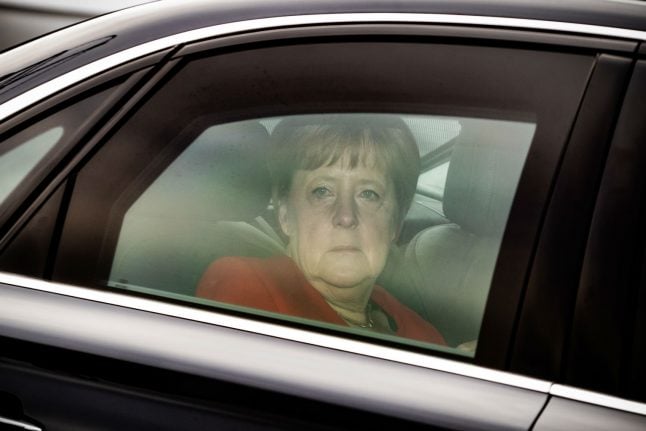A surge of support, helped by the Fridays for Future protest movement, propelled Germany's Greens to second place in Sunday's European Parliament elections, at the expense of the mainstream parties.
Chancellor Angela Merkel's centre-right CDU/CSU bloc and their ailing junior coalition partners the Social Democrats (SPD) both suffered historic losses after being caught flat-footed on environmental policy.
SEE ALSO: EU vote debacle leaves Merkel coalition with new headache
The far-right Alternative for Germany (AfD), which denies man-made climate change and defends coal mines and diesel cars, pointed to the Greens — who won 20 percent, double the AfD's score — as their new “main competitors”.
For Merkel's government, the resounding ballot-box slap piles on the pressure to quickly phase out dirty coal, boost renewables and put clean cars on the road, among other issues her cabinet is due to discuss Wednesday.
SEE ALSO: Six things to know about the EU elections in Germany?
“The young generation is demanding a new inter-generational contract from the EU and the German government to protect them from the climate crisis,” said Christoph Bals, head of activist group Germanwatch.
The World Wide Fund for Nature charged that Merkel's “grand coalition has failed to find answers for the greatest crises of our time … global warming and mass species extinction. The voters have clearly rejected this ignorance.”
Missed targets
The trained scientist Merkel — once dubbed the “climate chancellor” — is now seen by many as having dropped the ball on Germany's ambitious energy transition as the top EU economy is on course to miss its own carbon reduction targets.
Long a green energy pioneer committed to phasing out nuclear power by 2022, Germany is now meeting one third of its electricity needs with clean renewables such as wind, solar and biogas.
However, it is also still generating another third with coal, a climate killer with huge CO2 emissions, and has made little headway in reducing emissions from its transport and agriculture sectors.
SEE ALSO: Germany shutters last black coal mine
Merkel's government has also been widely criticized for coddling the powerful auto sector, a relative late-comer to electric vehicles.
Similarly, both the CDU and SPD have been seen to drag their feet on shuttering Germany's coal mines, with the deadline currently set for 2038, as they worry about the electoral backlash from job losses.
But while the big parties have cast a fearful eye on the AfD, they have now been blindsided by the greater electoral muscle of young people who fear inheriting an over-heating planet.
YouTube revolt
A generation of young people has grown up with dire predictions of melting ice caps, rising seas, more extreme weather events and resulting refugee flows and unrest.
Many no longer believe that the politicians currently in power are truly committed to averting the climate crisis that may fully strike only after they leave office, or after they die.
Last Friday, more than 320,000 children and youths rallied in Germany in the latest global wave of the demonstrations initiated by 16-year-old Swedish activist Greta Thunberg.
SEE ALSO: Berlin youths rally in climate protest before EU vote
“You're running out of excuses, we're running out of time,” read one protest banner.
Days earlier a 26-year-old blue-haired YouTube star called Rezo had become an overnight household name with a blistering hour-long attack on the coalition parties, much of it centred on climate change.
SEE ALSO: German YouTuber shakes up mainstream politics with viral video
CDU efforts to dismiss the video as a youthful rant appeared befuddled and patronizing, as the viral clip was viewed more than 12 million times and Rezo received the backing of more than 70 other YouTube stars.
After the EU vote, several leading politicians conceded they had underestimated the importance of climate policy.
But not everyone had a change of heart. The CDU's veteran Armin Laschet, 58, said mainstream parties need to better explain to “impatient young people…why climate protection can't happen that quickly”.
Luisa Neubauer of the Fridays movement fired back that Laschet had at once “thrown out the window any claim to climate policy competency or to wanting to level with young voters”.
She added a warning to him and other politicians: “More of us vote every year.”



 Please whitelist us to continue reading.
Please whitelist us to continue reading.
Member comments